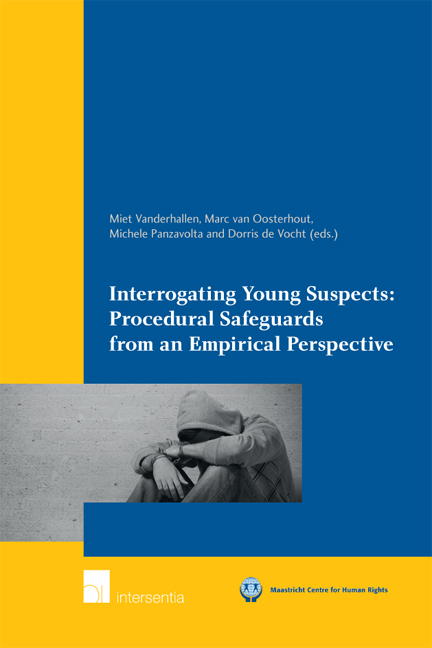Book contents
- Frontmatter
- Preface and Acknowledgements
- Contents
- List of Abbreviations
- Biographies
- Chapter 1 Introduction
- Chapter 2 Research Methodology
- Chapter 3 Belgium: Empirical Findings
- Chapter 4 England and Wales: Empirical Findings
- Chapter 5 Italy: Empirical Findings
- Chapter 6 The Netherlands: Empirical Findings
- Chapter 7 Poland: Empirical Findings
- Chapter 8 Integrated Analysis
- Chapter 9 The Guidelines
- Annexes
- Maastricht Series in Human Rights
Chapter 4 - England and Wales: Empirical Findings
Published online by Cambridge University Press: 21 September 2018
- Frontmatter
- Preface and Acknowledgements
- Contents
- List of Abbreviations
- Biographies
- Chapter 1 Introduction
- Chapter 2 Research Methodology
- Chapter 3 Belgium: Empirical Findings
- Chapter 4 England and Wales: Empirical Findings
- Chapter 5 Italy: Empirical Findings
- Chapter 6 The Netherlands: Empirical Findings
- Chapter 7 Poland: Empirical Findings
- Chapter 8 Integrated Analysis
- Chapter 9 The Guidelines
- Annexes
- Maastricht Series in Human Rights
Summary
INTRODUCTION
This chapter examines police practices and safeguards connected to the interrogation of juvenile suspects in England and Wales. Arising out of concerns over police pressure encouraging false confessions in interrogations in the 1970s, the Philips Commission was set up in order to examine the duties and powers of the police and the rights of suspects in respect of the investigation of criminal offences. The murder of Maxwell Confait, a 26-year old homosexual prostitute in 1972 became a cause célebre because of the way in which the police obtained false confessions from three young people. They were all subsequently convicted of serious offences but the convictions were later quashed by the Court of Appeal. Subsequently, the Police and Criminal Evidence Act 1984 (PACE) set out a legislative framework in order to protect suspects arrested and detained by the police, which includes a number of safeguards required during interrogations. These include the contemporaneous recording of all interrogations with suspects, the right to legal assistance during detention and interrogation, and the provision of an appropriate adult for juveniles and for vulnerable adults. Furthermore, section 76 of PACE requires that for confessions to be admissible in court, they must be voluntary and not the result of coercion and/ or oppression. From analysis of interrogations post-PACE, however, it was found that a manipulative form of interrogation had been replaced by a confrontational form in which the police would accuse suspects of having committed an offence at the start of the interrogation and ask for their response to such accusations. In response to this practice the new ‘PEACE’ model of interrogation, which arose out of a collaborative effort between the police and psychologists in England and Wales, was adopted by the police in the early 1990s.
The assumption underlying the PEACE model is that a suspect who is relaxed, and with whom the interrogator has a rapport, is more likely to cooperate by responding to police questions. While the PEACE model was reported to have the desired effect on police interview styles in the 1990s, there has been very little research subsequently into police interrogations with juvenile suspects. The most recent study, conducted by Medford and others was based on interrogations undertaken in 1997. Subsequently in 2002 a performance target was introduced which required the police to increase the number of detections.
- Type
- Chapter
- Information
- Interrogating Young Suspects IIProcedural Safeguards from an Empirical Perspective, pp. 127 - 182Publisher: IntersentiaPrint publication year: 2016
- 9
- Cited by



